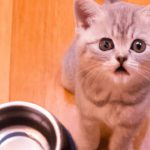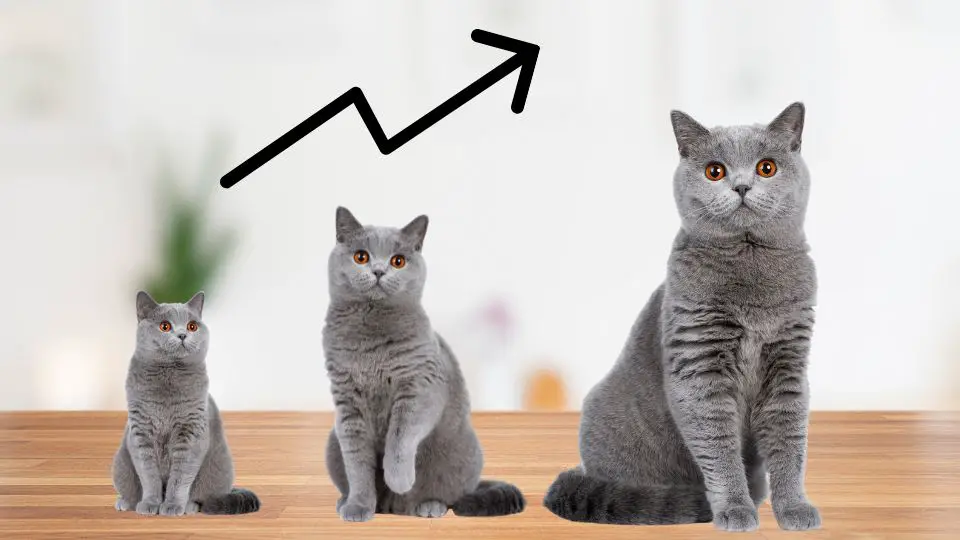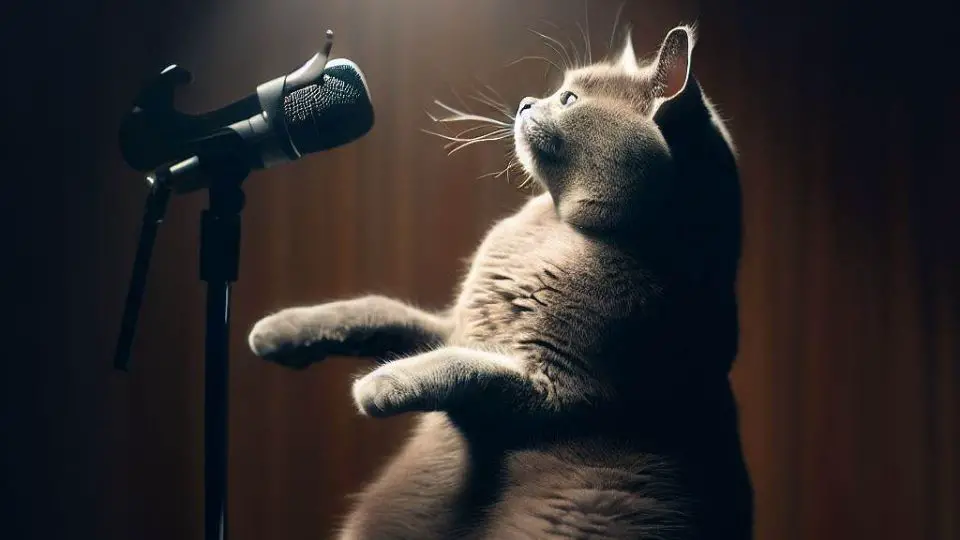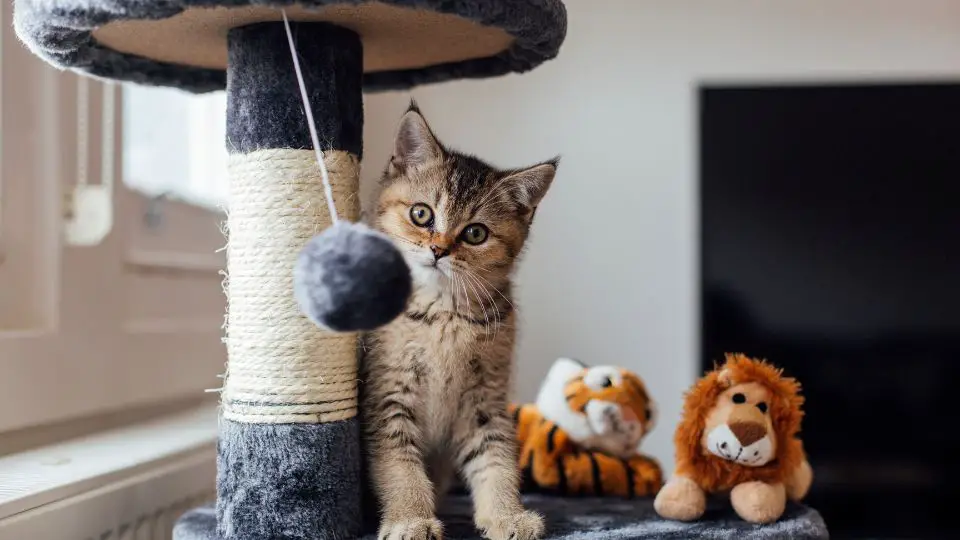Feeding your British Shorthair cat a nutritious and balanced diet is crucial for their overall health and well-being. But with so many options on the market, it can be difficult to know what the best food is for your feline friend.
In this article, we’ll explore the nutritional needs of British Shorthair cats and provide guidance on how to choose the best food for them.
Nutritional Needs of British Shorthair Cats
British Shorthair cats have a stocky and muscular build, which means they require a diet rich in protein to maintain muscle mass. Additionally, their dense and luxurious coat requires a diet rich in omega-3 and omega-6 fatty acids to maintain its shine and luster.
These cats are also prone to urinary tract issues, so their diet should be formulated to promote urinary tract health. This means providing adequate hydration and a diet that is low in magnesium and ash content.
Providing a balanced diet is crucial for the health and well-being of your British Shorthair cat. A balanced diet should contain a mix of protein, fats, carbohydrates, vitamins, and minerals to provide your cat with all the necessary nutrients.
Feeding your cat a balanced diet can help prevent health problems such as obesity, diabetes, and urinary tract issues. It can also improve their coat health, increase their energy levels, and promote overall longevity.
Can British Shorthair eat normal cat food?
Yes, British Shorthair cats can eat normal cat food. However, we must emphasize that you should choose high-quality, nutrient-rich food that meets their unique nutritional needs. Look for cat food that is specifically formulated for adult cats and that contains high-quality protein sources, such as chicken or fish.
It’s also a good idea to avoid food that contains excessive amounts of fillers or artificial ingredients, as these can be difficult for cats to digest and may contribute to health problems over time. Additionally, be sure to monitor your cat’s weight and adjust their diet as needed to maintain a healthy weight and avoid overfeeding.
Types of Cat Food
There are a variety of different types of cat food available on the market. Each type has its own unique advantages and disadvantages, so it’s important to understand the differences to choose the best option for your cat.
Dry Food
Dry food is the most commonly used type of cat food, and it comes in many different flavors and formulas. This type of food is convenient, easy to store, and can be left out for your cat to nibble on throughout the day. However, dry food has a lower water content, which means that cats may not get enough hydration from eating it alone.
Additionally, some brands of dry cat food may contain fillers or low-quality ingredients that are not as nutritionally dense as other types of cat food. This can lead to your cat consuming more calories to meet their nutritional needs, potentially leading to obesity or other health issues.
On the other hand, high-quality brands of dry cat food can provide balanced nutrition and be a convenient option for pet owners. They can also help maintain dental health by helping to reduce plaque and tartar buildup, as cats need to chew and crunch the dry kibble.
Note that some cats may have difficulty digesting dry food, especially if they have dental problems or are prone to urinary tract issues. It’s recommended to consult with a veterinarian to determine if dry food is the best option for your British Shorthair cat. If dry food is recommended, make sure to provide plenty of fresh water for your cat to drink to help prevent dehydration.
Wet Food
Wet food, also known as canned food, has a higher moisture content than dry food, making it an excellent choice for cats who don’t drink enough water. Wet food is also typically more palatable for cats, and many prefer the taste and texture of it over dry food. However, wet food can be more expensive and spoil more quickly than dry food, so it may not be as convenient for some cat owners.
Raw Food
Raw food diets for cats have become increasingly popular in recent years, and involve feeding your cat uncooked meat, organs, and bones. Advocates of raw food diets claim that they provide cats with a more natural and nutrient-dense diet, while opponents argue that they can be risky due to the risk of bacterial contamination. Raw food diets should only be used under the guidance of a veterinarian, and should be prepared and handled with extreme caution.
Choosing the Best Food for Your British Shorthair Cat
You should choose high-quality cat food that is specifically designed to meet the nutritional needs of your British Shorthair cat. Cheap, low-quality cat food may not contain all the necessary nutrients your cat needs and could potentially harm their health. Look for cat food brands that use high-quality ingredients and have a good reputation in the pet food industry.
Reading cat food labels can be overwhelming, but it’s important to understand what you’re feeding your cat. Look for cat food that lists a high-quality source of animal protein as the first ingredient. Avoid cat food that contains by-products, fillers, and artificial colors or preservatives. Check the guaranteed analysis to ensure the cat food meets the recommended nutrient levels for cats.
Key Nutrients for British Shorthair Cats
The key nutrients that should be included in a British Shorthair cat’s diet include:
- Protein: British Shorthair cats require high levels of protein to maintain their muscle mass. Look for cat food that contains at least 30% protein.
- Fat: Fat is an essential part of a cat’s diet and helps keep their skin and coat healthy. Look for cat food that contains around 15-20% fat.
- Taurine: Taurine is an essential amino acid that cats cannot produce themselves. Look for cat food that contains added taurine.
- Fiber: Fiber is important for digestive health and can help prevent hairballs. Look for cat food that contains around 3-5% fiber.
Brands of Cat Food for British Shorthairs
There are many brands of cat food available on the market, but not all of them are suitable for British Shorthairs. Some of them may contain too much grain, fillers, or artificial ingredients that can harm your cat’s digestion and overall well-being. To help you choose the right food for your British Shorthair, here are some of the top brands that we recommend:
Royal Canin British Shorthair
This is a specially formulated dry food that is designed to meet the nutritional needs of British Shorthairs. It contains high-quality animal protein, omega-3 and omega-6 fatty acids, antioxidants, and prebiotics to support your cat’s muscle mass, skin and coat health, immune system, and digestive health. It also has a unique kibble shape and size that encourages your cat to chew and reduces the risk of dental plaque.
Purina Pro Plan Adult Chicken & Rice
This is a wet food that is made with real chicken as the first ingredient and enriched with rice, vitamins, minerals, and taurine. It provides your cat with a balanced and complete diet that supports their muscle and bone health, urinary tract health, and hydration. It also has a delicious taste and texture that your cat will love.
Hill’s Science Diet Adult Indoor Chicken Recipe
This is another dry food that is ideal for indoor cats like British Shorthairs. It contains natural fiber to help your cat feel full and avoid overeating. It also has lean protein, antioxidants, and essential nutrients to support your cat’s weight management, immune system, and overall health. It has no artificial colors, flavors, or preservatives.
These are some of the best brands of cat food for British Shorthairs that we recommend. Of course, you should always consult your veterinarian before changing your cat’s diet and follow the feeding instructions on the label. Remember to provide your cat with fresh water at all times and monitor their weight regularly. By feeding your British Shorthair with high-quality food, you can ensure their happiness and longevity.
What’s a good diet for British Shorthairs?
British Shorthairs tend to have a slow metabolism and a low activity level, which means they can easily gain weight and become obese if they are overfed or given too many treats. Obesity can lead to various health problems for your cat, such as diabetes, arthritis, heart disease and urinary tract infections. Therefore, you should monitor your cat’s food intake and weight regularly and adjust their diet accordingly.
The ideal diet for a British Shorthair cat should be high in protein, low in carbohydrates and moderate in fat. Protein is essential for your cat’s muscle development and maintenance, as well as their skin and coat health. Carbohydrates are not a natural part of a cat’s diet and can cause digestive issues and blood sugar spikes. Fat provides energy and helps with nutrient absorption, but too much fat can also contribute to weight gain and inflammation.
You should choose a high-quality cat food that is specially formulated for British Shorthairs or for large breeds of cats. Look for a food that has meat or fish as the first ingredient and avoid foods that have grains, fillers, by-products or artificial additives. You can also supplement your cat’s diet with some wet food, which can help with hydration and urinary health.
The amount of food you should give your cat depends on their age, weight, activity level and health condition. As a general rule, you should feed your cat about 20 to 30 calories per pound of body weight per day. For example, if your cat weighs 10 pounds, you should feed them about 200 to 300 calories per day. You can divide this amount into two or three meals per day and use a measuring cup or a scale to ensure accuracy.
You should also provide your cat with fresh water at all times and avoid giving them cow’s milk, which can cause diarrhea and vomiting. You can occasionally give your cat some treats, such as cooked chicken, fish or eggs, but make sure they don’t exceed 10% of their daily calorie intake.
By following these tips, you can ensure that your British Shorthair cat gets the best diet possible and stays healthy and happy for many years to come.
Potential health problems for British Shorthairs and how to fix them with food
British Shorthair cats are generally healthy and resilient, but they are still susceptible to certain health issues. One of the ways to prevent or address these issues is by feeding your British Shorthair a nutritious diet that meets their unique nutritional needs.
Here are some potential health problems that British Shorthairs may experience and how they can be addressed with proper nutrition:
- Obesity: British Shorthairs are prone to obesity, which can lead to various health issues such as diabetes, heart disease, and joint problems. Feeding your cat a balanced and portion-controlled diet can help prevent obesity.
- Dental problems: British Shorthairs are also prone to dental issues, such as tartar buildup and gum disease. Feeding your cat dry food can help scrape plaque off their teeth, but it’s also important to regularly brush their teeth and provide dental treats.
- Urinary tract problems: British Shorthairs may develop urinary tract problems, such as bladder stones or urinary tract infections. Feeding your cat a diet that’s high in moisture and promotes urinary health can help prevent these issues.
- Allergies: Some British Shorthairs may have food allergies or intolerances, which can cause skin irritation, digestive problems, and other issues. Switching to a hypoallergenic or limited-ingredient diet can help identify and address these issues.
When choosing a diet for your British Shorthair, you should look for high-quality cat food that’s specifically formulated to meet their nutritional needs. Look for food that contains essential nutrients such as protein, vitamins, and minerals, and avoid fillers or artificial additives. Read the labels carefully and avoid any food that contains ingredients that your cat may be allergic to.
Are British Shorthairs always hungry?
No, British Shorthairs are not always hungry. They can have a healthy appetite, but their level of hunger will depend on their individual metabolism and activity level. It’s important to feed them a balanced diet and monitor their weight to ensure they are not overeating.
If you notice that your British Shorthair is constantly hungry, it’s best to consult with your veterinarian to rule out any underlying health issues.
Conclusion
In conclusion, choosing the right food for your British Shorthair cat is essential for their long-term health and happiness. By understanding their unique nutritional needs and paying attention to food labels, you can provide your feline friend with a balanced and nutrient-rich diet.
Be sure to consult with your veterinarian if you have any concerns or questions about your cat’s diet.







